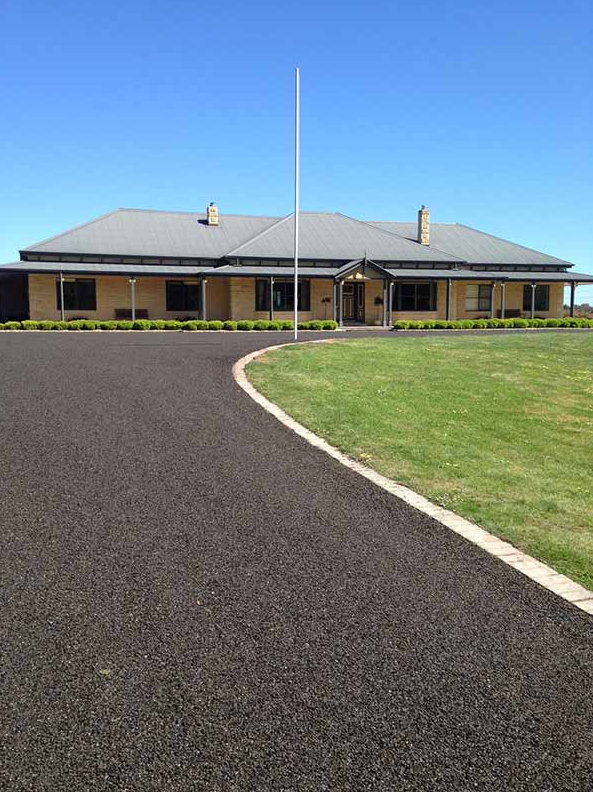Asphalt surfacing is a versatile and reliable solution for both residential and industrial applications. However, while the core material may be similar, the design, application techniques, and durability requirements vary significantly between the two. At Wattle Glen Road Tech, we work with homeowners, business owners, and contractors across Wattle Glen, VIC to deliver asphalt solutions tailored to their specific needs.
In this guide, we break down the key differences between residential and industrial asphalt surfacing—so you can make informed decisions based on your project requirements.
The Basics of Asphalt Surfacing
Asphalt is made up of bitumen (a petroleum-based binder) and aggregate (stones, sand, and other materials). It is laid hot and compacted to form a smooth, hard-wearing surface that resists weather, water, and traffic loads.
While the material base may be similar, the difference lies in how the surface is designed and constructed depending on the site’s intended use.
Key Differences Between Residential and Industrial Surfacing
1. Traffic Load and Surface Strength
Residential Surfacing:
- Designed for light traffic—mainly passenger vehicles, bicycles, and occasional delivery vehicles.
- The asphalt layer is typically thinner, around 25–40mm.
- Standard-grade materials are sufficient for long-term use when installed correctly.
Industrial Surfacing:
- Built to withstand heavy vehicles, such as trucks, forklifts, and machinery.
- Requires thicker asphalt layers—sometimes exceeding 75mm.
- Often includes reinforced sub-layers and higher-grade aggregates to handle intense load cycles.
2. Base Preparation
Residential Surfacing:
- Generally involves standard excavation and compaction.
- A single base layer is often adequate for most driveways and paths.
- Focus is on cost-effectiveness and aesthetic integration with the home.
Industrial Surfacing:
- Requires a strong, multi-layered base, often incorporating crushed rock, stabilised materials, or geotextile reinforcement.
- Base design is critical to support constant heavy traffic and resist deformation.
- Proper drainage design is also more complex and essential in industrial settings.
3. Design and Usage Expectations
Residential Surfacing:
- Typically covers smaller areas—driveways, footpaths, garden edging, and recreational surfaces.
- Design may include aesthetic touches like curved edges, decorative borders, or integration with landscaping.
- Homeowners prioritise visual appeal and comfort.
Industrial Surfacing:
- Covers large-scale zones such as warehouse yards, logistics terminals, loading bays, and service roads.
- Functional layout is key—often designed for high manoeuvrability and operational flow.
- Slip resistance and durability under stress are prioritised over appearance.
4. Maintenance Requirements
Residential Surfacing:
- Requires periodic sealing every 3–5 years.
- Crack sealing and small patch repairs are usually sufficient to maintain surface condition.
- Lower usage levels mean longer service life with minimal upkeep.
Industrial Surfacing:
- Subject to faster wear and requires regular inspection and more intensive maintenance.
- Common maintenance includes regrading, resealing, pothole repairs, and joint maintenance.
- Preventative maintenance is critical to minimise business downtime and safety risks.
5. Compliance and Safety Standards
Residential Surfacing:
- Must comply with local council regulations and property access guidelines.
- Less stringent in terms of structural certification.
Industrial Surfacing:
- Must often meet higher safety, environmental, and structural standards, particularly in commercial and industrial estates.
- Projects may require engineered design, council approval, and regular audits.
Choosing the Right Contractor Matters
Regardless of whether the project is for a home driveway or an industrial loading dock, the quality of workmanship and materials will determine the outcome.
At Wattle Glen Road Tech, we offer tailored asphalt and bitumen surfacing services across Wattle Glen, VIC. Our experienced team ensures that every surface—residential or industrial—is designed and built to meet its specific demands, with long-term performance in mind.
Our services include:
- Driveway and access road construction
- Industrial yard and hardstand surfacing
- Spray seal for rural properties
- Asphalt repair and maintenance
- Drainage and base preparation solutions
Conclusion
While residential and industrial asphalt surfacing may use similar materials, they differ greatly in terms of construction requirements, traffic tolerance, design goals, and maintenance. Choosing the right surface for your needs—and working with experienced professionals—ensures better durability, safety, and value over time.
If you’re planning a surfacing project in Wattle Glen, VIC, contact Wattle Glen Road Tech. Whether it’s a new driveway or a large industrial yard, we’ll provide the right solution with expert guidance and high-quality results tailored to your site.
Call us on: 03 9068 7895
Click here to find out more about Wattle Glen Road Tech
Click here to complete our contact form and see how we can help with your driveway needs.

